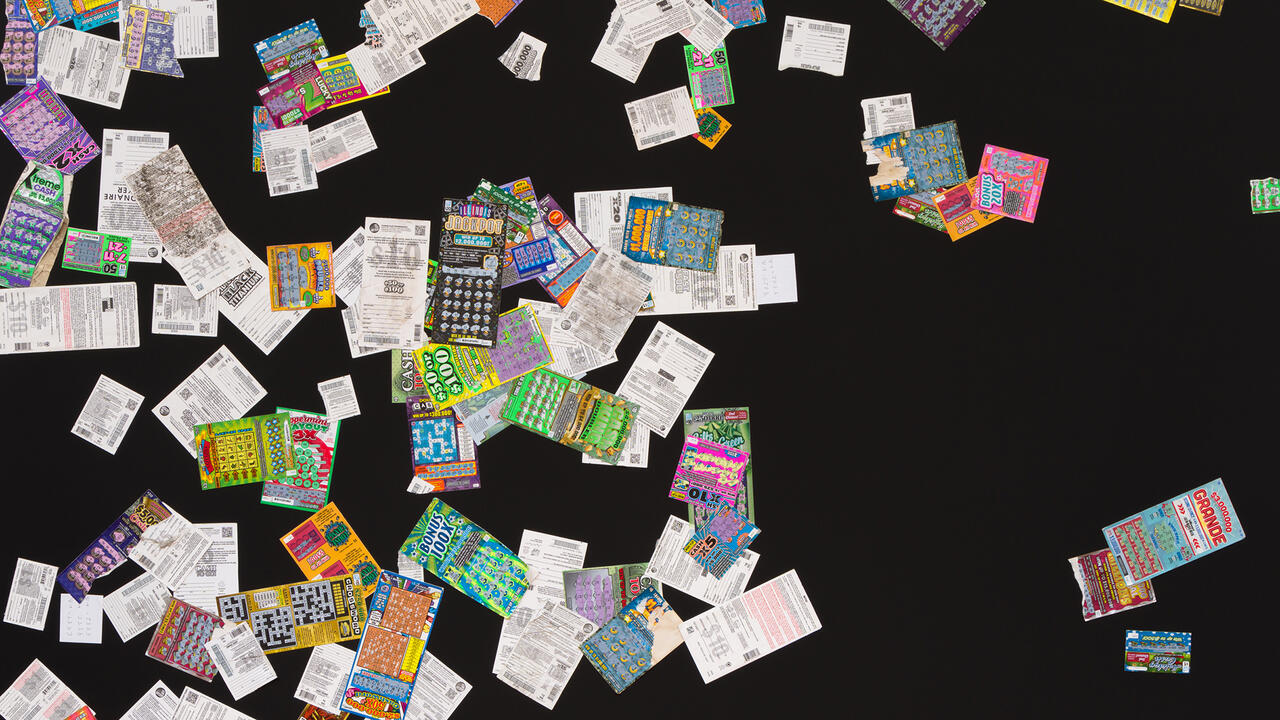B. Wurtz’s Art of Domesticity
An exhibition at Metro Pictures, New York, sees the artist explore the artistic potential in objects of everyday life
An exhibition at Metro Pictures, New York, sees the artist explore the artistic potential in objects of everyday life

In B. Wurtz’s ‘Domestic Space’, we learn that the artist eats plain yogurt and 7-grain bread. He cleans his shirts with vinegar and not bleach. He wears mauve socks and laces his sneakers. Committed to ‘an ethics of reuse’, Wurtz’s sources his material from his own home. This is to say, then, that Wurtz’s sculpture of household objects, presented here in neat arrangements alongside monumental photographs of that same stuff, does not reveal deeply hoarded secrets about the artist, but instead indexes the small appliances that he lives with every day. In this stunning show, the artist’s third at Metro Pictures, three suites of sculpture dilate the means by which ‘domesticity’ is contextualized in and out of the gallery space, suggesting that the domestic subject is a product of the things that surround him or her.
In the first of three rooms, Wurtz’s presents work from his ‘Photo/Object’ series (1987–ongoing). For each sculpture (all works 1987), Wurtz pairs a small, familiar item – Untitled (Silver Lampshade) or Untitled (Steamer) – on a wooden platform with a looming, black-and-white close-up photograph of the object behind it, emphasizing their potential monumentality. Wurtz’s detailed visual balancing between the small and the large, the thing and the thing-photographed twists the ways in which we are often trained to encounter the ready-made. The steamer is not only a steamer, but a skyscraper, too.

In the next two rooms appear more recent sculptures, which, like the aforementioned series, enact a rather disarming balancing act between the usual play with found-objects and conceptual witticism. In the first of these rooms, Wurtz installs several studies in miniature: tags from bread loaves and screws are given platforms that, in their smallness, resemble a child’s set of building blocks. Large-scale photographs of recyclables, wash-cloths and empty glasses are printed on fabric and pinned to the wall. In the opposite room, free-standing wooden scaffolding recall Donald Judd’s late plexiglass sculptures, which retain their shape by taut, carefully installed wiring. Wurtz foregoes Judd’s specificity for homey crassness: socks dangle in the works’ centres; Home Depot-branded rulers and spare shoelaces hang from wooden slats with flimsy white string; plastic bags and nets wave and jut up from the boxes, like flags at full-mast - but heralding what? I think of T.S. Eliot’s worn out soul of a narrator singing out, ‘We are the hollow men’, after which he admits, ‘we are the stuffed men’.

In coupling the crude elements of quotidian material with the defamiliarizing formal techniques of 20th century conceptualist and minimalist practice, ‘Domestic Space’ acts as a premonitory recovery of the heaps of refuse we consume but so often refuse to see: hollow-stuffed men, from this day to our last. Octave (2018), arranged atop a table, is installed in the front foyer of the gallery. For this sculpture, the artist plucked the innards of keys from an old piano – wooden clips with velvet backings barely intact – as well as stray plastic bottle caps and buttons and strung them onto the ends of eight metal spokes, all of which appear potted in the central port of a futuristic Harmon Kardon speaker, surround sound literalized. There’s a cheekiness to this anachronism, as there is in much of Wurtz, but it works. By coupling the objects we often forget or lose or break (bottlecaps, cooking utensils, keys of old pianos) with the objects we value sometimes too highly (in Octave, that pricey speaker), Wurtz transforms the common, the slick and the familiar into far stranger things.
B. Wurtz, 'Domestic Spaces' was on view at Metro Pictures, New York, from 6 September until 20 October 2018.
Main image: B. Wurtz, 'Domestic Spaces', 2018, installation view. Courtesy: Metro Pictures, New York

























